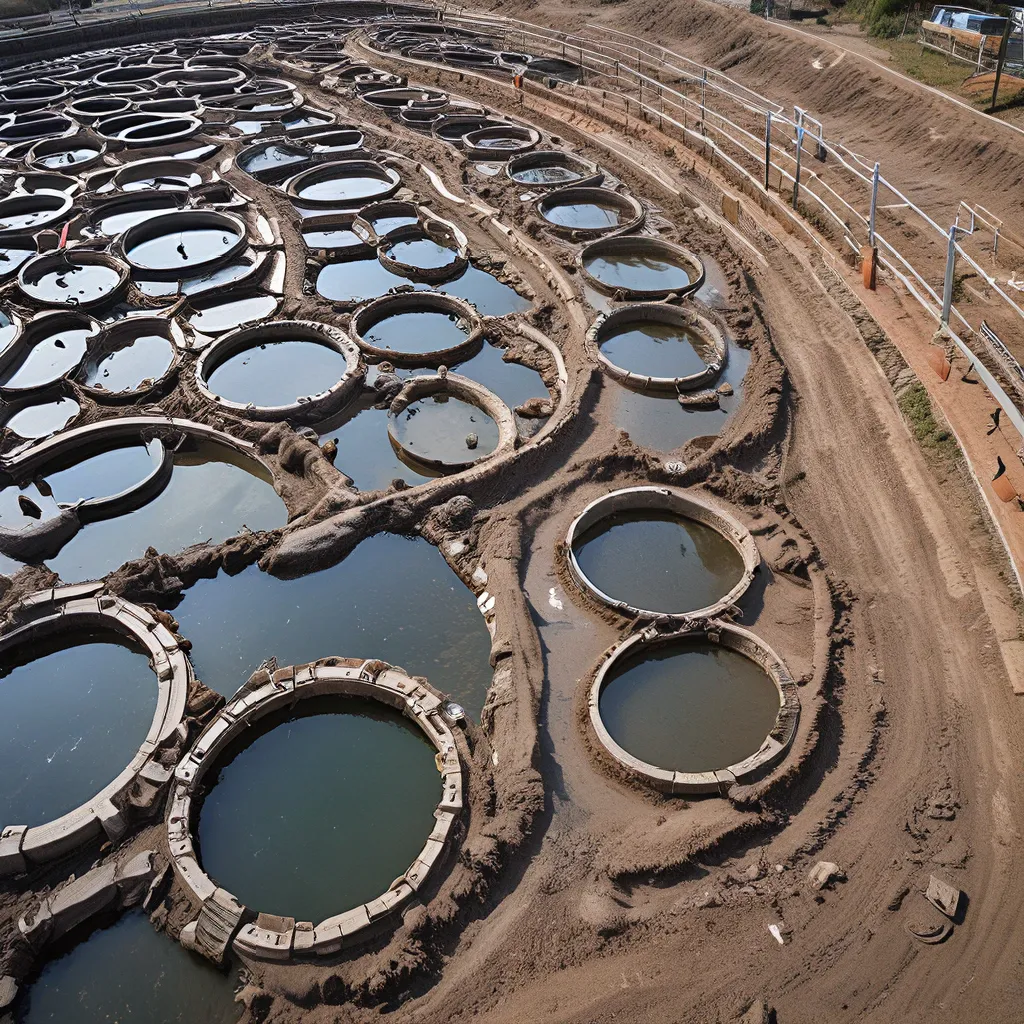
As I delve into the world of wastewater treatment, I’m struck by the incredible potential that lies within this often-overlooked domain. It’s not just about cleaning water – it’s about optimizing the entire process to yield multiple benefits and transforming what we once saw as waste into a valuable resource.
Embracing the Circular Economy Mindset
At the heart of this transformation is the circular economy – an ideology that envisions a world where resources are circulated for as long as possible, minimizing waste and maximizing value. This mindset aligns seamlessly with the realm of wastewater management, where traditional linear treatment methods often discard valuable components.
Circular wastewater treatment embodies this principle by treating wastewater not as waste, but as a source of reusable materials, energy, and nutrients. By embracing these circular economy principles, wastewater treatment plants can become hubs of sustainability, producing clean water while generating energy, nutrients, and even bio-based products.
Unlocking the Power of Resource Recovery
The advantages of circular wastewater treatment are twofold. Firstly, it significantly reduces the environmental impact by minimizing pollution and conserving resources. Secondly, it introduces economic benefits through the recovery of valuable materials.
Design thinking is vital to realize the potential of circular wastewater treatment. This approach involves envisioning the entire lifecycle of wastewater, identifying critical areas for resource recovery, and incorporating innovative technologies.
Sustainable technologies like membrane bioreactors, anaerobic digestion, and algae cultivation aid in nutrient extraction, organic matter valorization, and even removing emerging contaminants. Process modeling and optimization further enhance resource recovery and efficiency, unlocking the full potential of these circular systems.
The Power of Data and Intelligent Technologies
As our understanding of water contaminants expands, circular wastewater treatment systems are at the forefront of addressing emerging pollutants. Moreover, these systems extract and utilize nutrients like nitrogen, phosphorus, and potassium, which add value to fertilizers.
The organic matter in wastewater can also produce biogas, biofuels, and bio-based products, creating additional revenue streams. Regulatory frameworks worldwide are increasingly recognizing the potential of circular wastewater treatment, fostering an environment where innovation can thrive.
The integration of intelligent technologies, IoT sensors, AI algorithms, and automation elevates the precision and efficiency of circular systems, pushing them to new heights of sustainability and effectiveness. By gathering real-time data, optimizing processes, and ensuring efficiency, these technologies unlock the full potential of circular wastewater treatment.
Aligning with Regulatory Frameworks and Economic Incentives
Circular economy projects often present compelling economic feasibility, as they create revenue streams by valuing resources that were once considered waste. Governments and organizations worldwide are introducing incentives and policies that promote circular practices, further enhancing the business case for these transformative projects.
At Alpha Wastewater, our circular wastewater treatment proposal envisions a cleaner environment and a sustainable resource hub. By recovering nutrients, producing bio-based products, and harnessing energy, we create an autonomous system that benefits the planet and the economy.
When presenting our water circular economy project, we will emphasize the environmental benefits, economic viability, and alignment with regulatory frameworks. A comprehensive feasibility assessment will showcase the potential returns on investment, both monetarily and ecologically.
Embracing the Future of Wastewater Management
The water industry is experiencing a paradigm shift towards circularity, with decentralized treatment systems and cross-sector collaborations reshaping how we manage our water resources. This transition is driven by the recognition that wastewater is not just a problem to be solved, but an opportunity to be seized.
As we continue to explore the frontiers of circular wastewater treatment, I’m excited to see the evolution of sustainable technologies, the integration of intelligent systems, and the emergence of new business models. This is not just about cleaning water – it’s about transforming a conventional process into a dynamic engine of resource recovery, waste reduction, and economic growth.
Converging circular economy principles and wastewater management opens doors to a new era of sustainability and innovation. By treating wastewater as a valuable resource, we can turn a challenge into a source of abundance, benefiting both the environment and the economy.
Let’s continue this conversation and collaborate toward a future where circularity guides our every step. Together, we can unlock the true potential of wastewater and shape a better tomorrow, one drop at a time.